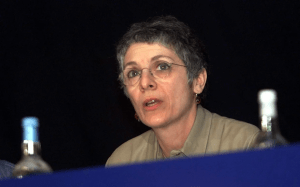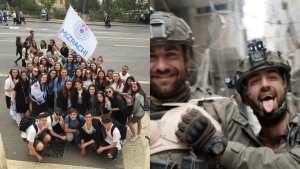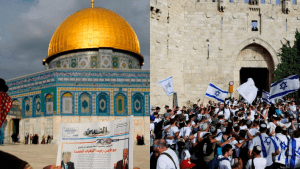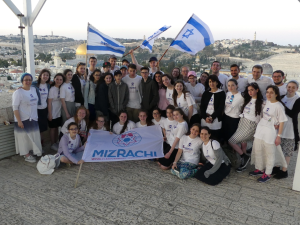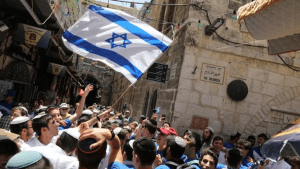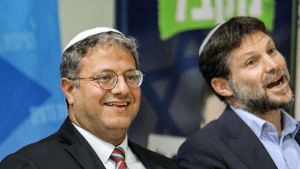Israel’s “humanitarian city” plan seen as concentration camp
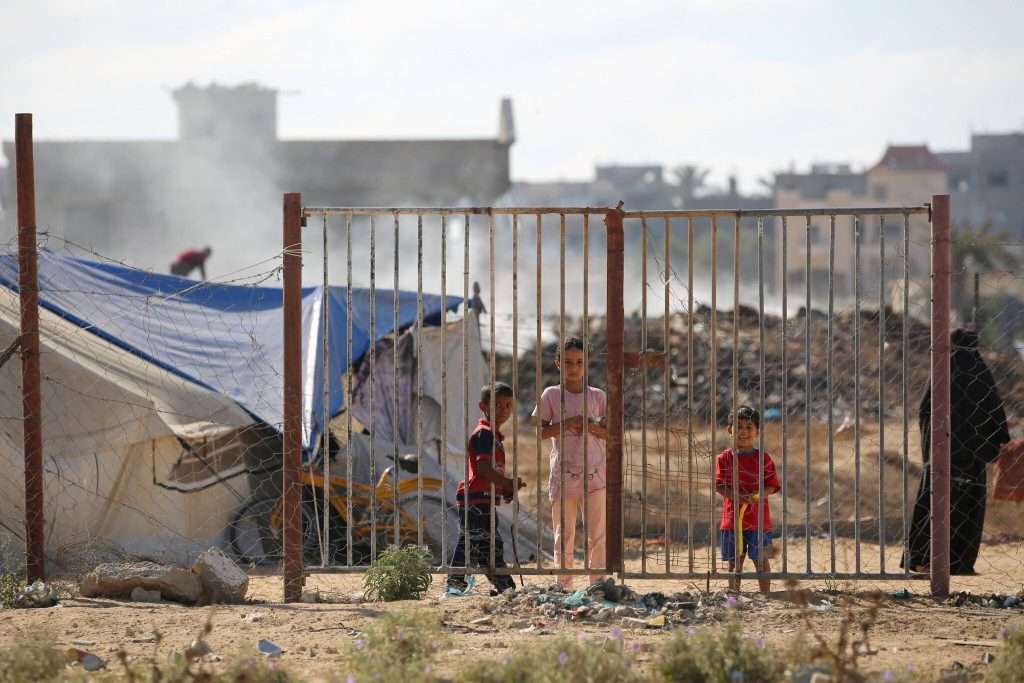
Israel’s Defence Minister Israel Katz on July 8th presented a controversial plan to relocate around 600,000 Palestinians into a tightly controlled zone west of Rafah, called Al-Mawasi, according to The New Arab.
Marketed as a “closed humanitarian city,” the plan has drawn sharp criticism, with many describing it as a veiled attempt to forcibly displace Palestinians from Gaza into what amounts to an open-air concentration camp.
Under the proposal, civilian administration would be handed over to international aid organisations, while Israel would retain full military control over security and movement, according to Israeli media reports.
Israel’s broadcaster Kan 11 framed the plan as a strategy to “separate civilians from Hamas fighters.” However, Palestinians speaking to The New Arab condemned it as a humanitarian smokescreen designed for detention and expulsion.
“This isn’t a humanitarian city; it’s a concentration camp built atop our destroyed homes,” said Mohammed Rayyan, a 41-year-old displaced taxi driver from north Gaza. “They want to trap us behind fences, cut us off from the world, and then push us to leave. It’s forced displacement disguised as aid,” he added. Rayyan described the move as part of a decades-long strategy of erasure: “This is a continuation of Israeli policies since 1948. The goal has always been to drive us out and replace us with settlers. International law means nothing to Israel.” He also accused the United States of complicity: “This plan couldn’t happen without Washington’s backing.”
Gaza-based journalist Yousef Taha echoed these concerns, describing the proposal as a premeditated campaign of demographic engineering extending across the occupied Palestinian territories. Taha told The New Arab: “What Israel is calling a humanitarian solution is in fact a massive detention zone. Palestinians would be confined behind gates, stripped of their freedom and rights, and slowly pushed toward forced exile.”
He warned that this was not a temporary measure: “It’s part of a long-term plan to empty the land, whether in the West Bank, Jerusalem, or Gaza, by making life so unbearable people feel they have no choice but to leave.”
Taha also pointed to longstanding US-Israeli coordination: “When Trump called Gaza ‘unliveable,’ it wasn’t just rhetoric; it was setting the stage for what we’re seeing now. This is a modern Nakba, orchestrated with new tools, legitimised by global institutions, and enforced by Israeli military power.”
Taha further cautioned that international organisations risk becoming complicit should they agree to administer what he called “a humanitarian façade for ethnic cleansing.”
Umm Muhammad Asaliya, a 38-year-old mother of five, shared her fears from a shelter in Deir al-Balah where her family has sought refuge after repeated Israeli strikes in northern Gaza. “Since the war began, we’ve been running from one bombing to the next,” she said. “Now they want to lock us inside a fenced concentration camp with no water, no medicine, no future. This isn’t humanitarian. It’s a big prison for us.”
“For two years, we’ve been living a new Nakba, but we won’t leave voluntarily. This is our land. No matter how harsh it gets, we will not become easy victims of this criminal plan,” she added.
Although the plan has been widely promoted within Israeli media, it reportedly faces reservations inside Israel’s own security establishment. According to the Hebrew-language daily Maariv, Israeli Chief of Staff General Eyal Zamir rejected the proposal, citing the absence of a clear security and logistical framework and concerns that it could further destabilise what is currently a volatile situation.
Indeed, the proposal has yet to receive formal government approval, raising questions over its viability and highlighting internal divisions on how to proceed in Gaza.
Palestinian political analysts have denounced the plan as a severe violation of international law. Under the Fourth Geneva Convention and the Rome Statute of the International Criminal Court, the forced displacement of civilians in occupied territories constitutes a war crime.
“The goal is not to separate Hamas from civilians, it’s to engineer hunger, despair, and displacement. This is a systematic policy of demographic cleansing, and potentially, genocide,” warned Hussam al-Dajani, a political analyst in Gaza. “Israel, as an occupying power, is obligated under international law to ensure food, water, and medical care for civilians. Instead, it’s weaponising deprivation to force people out.”
Al-Dajani also suggested that the timing of the announcement was calculated: “Katz unveiled this plan in the middle of sensitive ceasefire talks. It’s clearly meant to sabotage negotiations. Netanyahu has no intention of ending the war. He’s using diplomacy as a smokescreen to implement facts on the ground.”
As Israel’s war on Gaza stretches over 20 months, with ongoing blockades, mass displacement, and the weaponisation of aid, Palestinians fear this latest proposal could mark a decisive stage in erasing their presence from their homeland.
Even if not yet enacted, its public presentation and apparent international coordination suggest that preparations may be quietly advancing.
The New Arab plus agencies, Maghrebi.org
Want to chase the pulse of North Africa?
Subscribe to receive our FREE weekly PDF magazine




